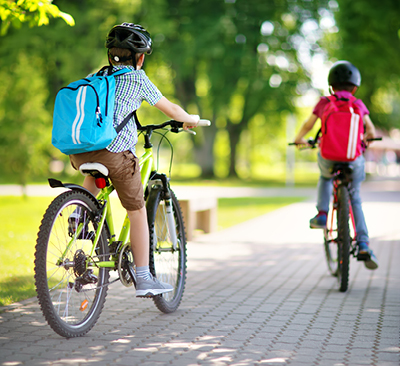Key findings
Many Australian school children almost never walk or ride their bikes to school, according to new findings from The Royal Children’s Hospital National Child Health Poll.
More than two thirds of children (71%) do not walk or ride to school at all in a typical week and the majority of children (58%) are driven to or from school by a car. The main worries parents have about independent travel relate to the safety of their child and one in five teenagers (20%) never travel to or from school without an adult.
The RCH Poll on the habits of Australian families when travelling to school found one in four primary school children (24%) walk or ride to school most days of the week, either with or without an adult, while about a third of teenagers (38%) take public transport most days of the week. Parents also identified other barriers that stopped children walking or riding to school. Most parents (58%) said school was too far away to walk or ride, while one in four parents (42%) said their child had too much to carry and 46% said there was nowhere safe for their child travelling alone to cross the road.
The poll also found:
More than half of primary school children (52%) live less than 2km from school, while a quarter (26%) live less than 1km.
One in five teenagers (20%) never travel to or from school at all without an adult.
Children are on average 11 years old when they first travel to school without an adult, though only 12% of primary school aged children travel every day independently.
71% of teenagers travel to or from school independently at least once a week and 45% travel independently every day.
Among those parents who reported driving by car as the most common mode of travel to school, the reason for doing so included:
- Driving is the quickest form of transport (52%)
- Driving is the safest form of transport (48%)
- Driving fits in with the family schedule (46%)
- Driving is a way to spend time with my child (19%)
- Driving is my child’s preference (15%)
Poll Director and paediatrician Dr Anthea Rhodes said: “Work and life pressures make it hard for parents to walk or ride with their children to school, but even one day a week of active travel to school is better than none at all.”
“Walking or riding to school is a healthy habit – even if you drive part of the way and walk the rest. It lets children practice road safety and it gives you time to connect with your child.”
“Even if children walk, ride or take public transport to school once a week, they will learn independence and problem solving. It sets them up well for when they start to travel by themselves.”
TIPS FOR PARENTS
Tips to encourage active travel
- Drive part of the way and walk the rest
- Plan the safest route and practise it
- Pair up with a friend
- Start a walking group
- Designate at least one day a week to walk or ride to school
Tips to build skills for independent travel
- Walk or ride with your children from a young age to build their familiarity with the route
- Teach your child road safety on the way
- Teach your child about stranger awareness and personal safety
- Give your child safety plans and strategies
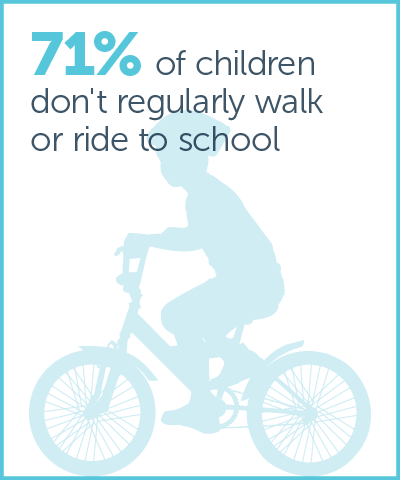
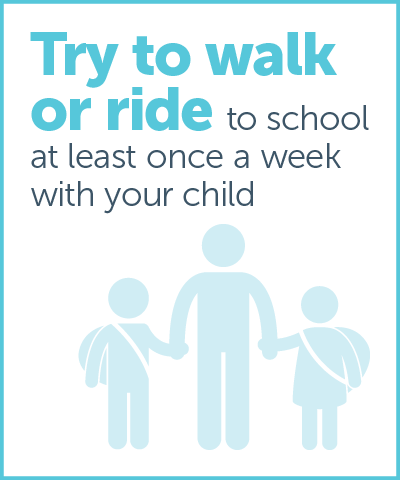
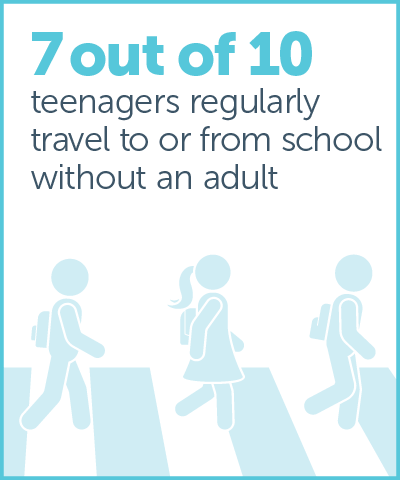
Poll report

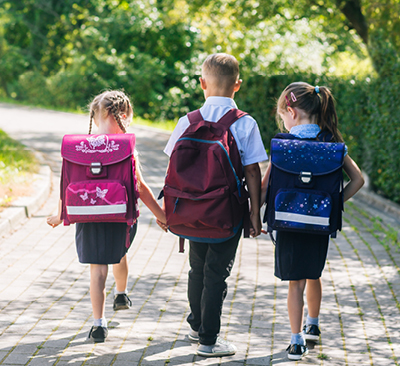
Poll questions

Travelling to school: Habits of Australian families
Download poll questions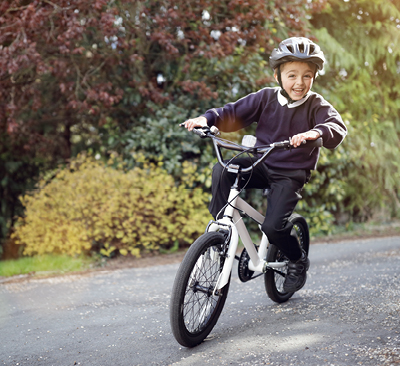
In the news
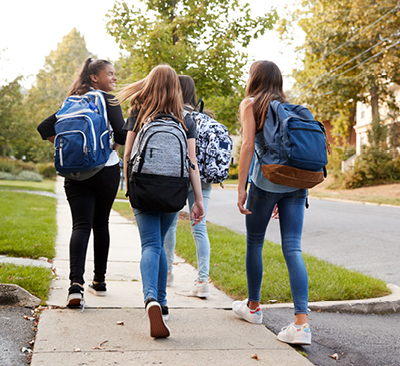
Information for parents
Tips to encourage active travel
- Drive part of the way and walk the rest
- Plan the safest route and practise it
- Pair up with a friend
- Start a walking group
- Designate at least one day a week to walk or ride to school
Tips to ease parental fears
- Walk or ride with your children from a young age to build familiarity with the route
- Teach your child road safety on the way
- Teach your child about stranger danger
- Give your child safety plans and strategies
Resources to encourage active travel and foster independence
- Vic Health: Helping parents to support children to safely travel
- Vic Health: Walk to school
- NSW Government: Road safety education
- Raising children network: Pedestrian safety
- Live lighter: Active transport for kids
- Healthy kids: Active transport
The Royal Children’s Hospital resources
- RCH Kids Health Info – Pedestrian safety
